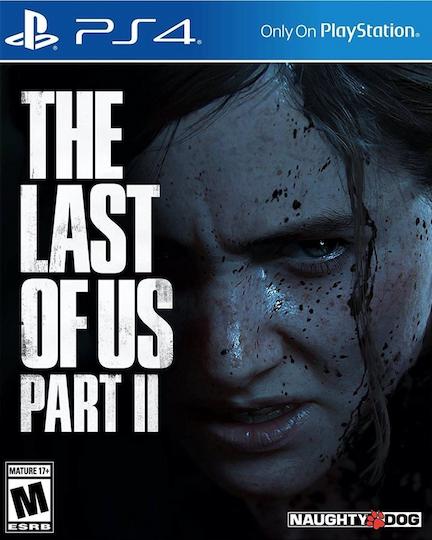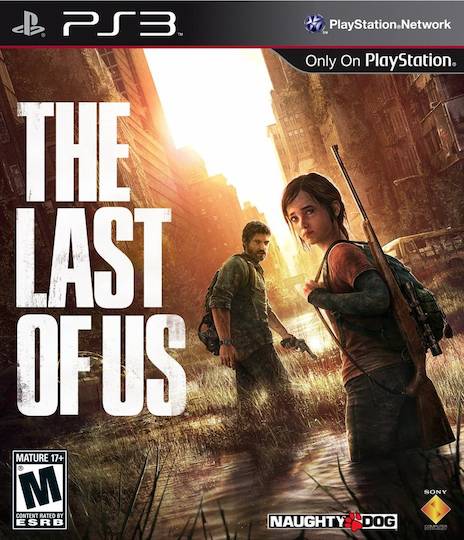This post is partly a (two month late) response to Chris Hecker’s GDC 2010 rant entitled Please Finish Your Game. It also condenses some rough thoughts I’ve long held about motivation and game making. It took some effort to edit it into a coherent form, so I apologize in advance if it’s a tad rambling.
In his rant, Chris expresses concern about the fixation on short development time. He worries that rapid-fire game releases (exemplified by Jonatan “Cactusquid” Söderström) have become a “badge of honour” in the indie game community. This attitude is mirrored in the industry, where ship dates often trump quality. Chris asserts that, in terms of contribution to games as an art form, Braid is worth more than 100 game jam games because it explored its mechanics to the depth that they deserved. “We need more depth and understanding”, he says. “We don’t need more wacky ideas or shallow games.”
I have great respect for Chris (I loved his talk at MIGS 2009) and thus am cautious about disagreeing with him. However, I believe his argument overlooks the real value of rapid development and its place in the creative ecosystem1. I think that it’s misleading to compare a masterpiece like Braid with the multitudes of forgettable unpolished jam games. The final product isn’t the point; the value of a game jam lies in the process of creation. Specifically, game jams provide tools that enable amateur game designers to experiment, learn and grow.
Anecdotal evidence suggest that there are a great many people who are interested in making games, but have never done so. I suspect this is largely due to the fact that to start making games, you have to make your first game. There’s tremendous symbolic and psychological value to doing something for the first time, especially if it’s something you’re passionate about. As Havi Brooks explains, doing what you love can be terrifying:
You’re avoiding the thing that’s holding all your dreams? Good grief! Of course you are! That symbolic weight? It’s that much potential for hurt and disappointment. […] It’s not this: “Even though I thought this meant everything to me, I’m still avoiding it so clearly I don’t really care about it.” It’s this: “Wow, this means everything to me… so of course I’m avoiding it.”
Game jams provide tools to help overcome this pressure. For instance, they establish a well-defined start and end date for the project. They provide a theme to riff off. Fellow jammers can provide assistance and feedback. Finally, knowing that you’ll release a game concurrently with dozens of others reduces its symbolic value. Simply put, game jams provide a friendly supportive atmosphere for newcomers.
Those who do take the leap and make their first game quickly run into another problem: they don’t like what they’re making. After all, if you care about games enough to try your hand at making one, then your taste in games is likely quite advanced. You’re perceptive enough to know that what you’re making isn’t very good. Ira Glass explains why this is problematic: “Your taste is good enough that you can tell that what you’re making is kind of a disappointment to you. […] A lot of people never get past that phase.”
Fortunately, he also presents a method of getting past this roadblock: “The most important possible thing you could do is do a lot of work. Do a huge volume of work. Put yourself on a deadline so that every week or every month you know you’re going to finish one [game].” In other words, do exactly what people like Cactusquid and the Experimental Gameplay Project are already doing! Experiment with weird genres, unusual aesthetics and unfamiliar technologies. Create exactly the kind of unfinished shallow games that Chris Hecker is warning us against. Why? Because nobody can create a masterpiece without first making a hundred crude sketches.
In a general sense, I worry that the burden of having to develop mechanics deeply will dissuade people from making games. If it is “our duty as developers to follow a mechanic to its logical and aesthetic extent”, then the inverse is also true; we should not make a game if we cannot give its mechanics their due diligence. This encourages designers to hold onto their ideas, waiting until they have the time to execute them with the appropriate fidelity. To quote Ze Frank: “If you don’t want to run out of ideas, the best thing to do is not to execute them. You can tell yourself that you don’t have the time or resources to do them right. Then they stay around in your head like brain crack.” This attitude is anathema to amateur game development. It’s better to get those ideas out there, even if they’re flawed and incomplete!
If we embrace this sort of flawed rapid development, do we then disregard the notion of exploring mechanics to the depth that they deserve? I don’t believe we have to. As Cactus observed in an e-mail discussion with Chris, “it’s hard to decide if the game you’re working on really deserves that much hard work or not.” Creating these crude unfinished games is a form of prototyping; ideas that seem promising can be developed further2. Chris himself did this with Spy Party:
SpyParty was actually an idea from Indie Game Jam 4 that I didn’t quite get working at the jam, but that I felt was strong enough to spend (a lot) more time on.
In conclusion, while I appreciate that “the good-enough is the enemy of the excellent”, I think the onus of developing mechanics fully is detrimental to amateur game development. Creating wacky, shallow games plays a valuable part in building up new developers. Attracting fresh voices and perspectives is the surest route to expanding games as an art form and creating more masterpieces like Braid. Don’t worry too much about greatness, just get excited and make things!

1 I feel a bit sheepish saying this to one of the founders of the Indie Game Jam.
2 This may have been Chris’ point all along: too few developers are following through in this manner.







May 31st, 2010 at 9:00 pm
Hear, hear!
I’ve yet to take part in the likes of the EGP myself, yet every month I tell myself “i’ll make something this time” but never do. I nearly did last month, but got so bogged down in it. I have made some games at Uni, a couple that are absolutely awful and one i’m quite fond of but I spent so long creating it that I missed the deadline.
Even now, I find myself putting off creating a couple of games I want to make because I want them to be perfect. Just like your quote from Ze Frank up there, the same ideas are bouncing around in my skull, creating a block that stops me seeing past them. I’d decided before I read your post just to get stuck in and do them, but this has been another shot in the arm to get me moving, so thanks.
While I don’t think we should rush development in general – I personally appreciate a polished product – for something like a game jam I agree that it’s healthy, and necessary. Throwing stuff out quickly like that is highly collaborative and encourages community spirit. Hopefully then the lessons learned will rub off on more long term projects.
I suppose, at the end of the day, there’s nothing to stop you remaking a throwaway game again later if you really care about it that much.
May 31st, 2010 at 7:38 pm
Well said. I think your point that “nobody can create a masterpiece without first making a hundred crude sketches,” is particularly important.
I wonder how much of this is due to confusion over sketches and final, published pieces. Just like Facebook and Twitter have made smaller, sketchy, half-baked thoughts accessible, “published” in a way, so has the web and communities like TIGSource and the game jams made smaller, sketchy, half-baked games and mechanics available to many people.
You can say that Twitter and game jams are full of junk, with occasional ideas that deserve to be built upon, or you could see them as places to put things out, places where people share to share, where they work on their ideas aloud.
June 1st, 2010 at 9:37 am
A great article, but what about those who never continue beyond only making simple skectches and never try, and possibly fail, at creating a masterpiece?
June 1st, 2010 at 9:40 am
And it really wasn`t a rant against prototyping, that`s essential for good development. However, you can`t prototype forever. Yes, Spy Party came from a GameJam, but the entire point is that he`s working further on it now and giving it the attention it deserves.
June 1st, 2010 at 11:05 am
Great post.
I don’t think you should be sheepish about disagreeing with people you respect – indeed that is when you should be vociferous! Indeed since you respect them, you are attacking their idea and not _them_ which is what a lot of small-minded people think when they hear criticism and what a lot of people slip into when they don’t respect those they disagree with.
Back to the point, one of the problems with putting together quick and dirty ideas without polish is that you are often judged (in this industry at least) by what you’ve done recently. If all you have to your name is a bunch of wonky prototypes that seem unfinished, then many will think that you haven’t really _done_ anything. While at the same time, simply being attached to a blockbuster might open you doors, even if you didn’t do anything to make them blockbusters. I’m not saying it is fair, but to help your career you at the least need to follow his advice and finish something to the point that it is good enough to show folks.
June 1st, 2010 at 3:56 pm
This is a great article, thanks for writing it and picking out the videos (especially Ira Glass and ze frank – I think I have some of that Braincrack). I liked Chris Hecker’s speech, but this article seems more useful in terms of figuring out how to make stuff and realising why stuff doesn’t get made.
June 16th, 2010 at 1:59 pm
Great article. I’d like to note that this mentality of making a masterpiece doesn’t just apply to making games, it applies to making music, literature, and many other art forms. It explains why so many would be writers don’t get through their novel, or why musicians will only toil in cover bands. Almost every writing book I’ve glanced at says the same thing–just write. Even if its bad, or not up to your standards, you need to finish something, anything.
June 16th, 2010 at 10:11 pm
I agree whole heartedly with your thoughts and it applies to more than just games. I’ve had ideas and plans for several line of business applications that just never get off of the ground. Mostly because I don’t think they’ll be good enough.
I just need to build them, learn from them and then build the next one.
Thanks!
July 3rd, 2010 at 9:01 pm
[…] is it that much fun. But it came together on schedule, so I’m pleased. As others have said, putting together even cheap, short, and unpolished games can be a good thing at […]
September 8th, 2010 at 8:50 am
I think you are mischaracterizing what Chris said. I was at that talk, and I never got the impression he was ranting against prototyping or experimentation. He was more speaking to commercial developers who release half-baked games, and he was railing against a professional community where half-baked is becoming the norm.
What you say about creativity and doing sketches before finished products is fine and sensible, but the problem Chris was pointing out (I feel) was the *confusing* of sketches with finished products, and that this is a lazy professional standard that was destructive to advancing the art of game design.
I have to say, my feelings are close to Hecker’s on this. Speaking as someone who has personally crossed that gap from theorist to practitioner, I have first-hand experience of the need to experiment–to sketch–and overcome the fear you describe, and for me experimentation is still no excuse for half-finished work. I also work with young game developers everyday at my job in trying to teach them to overcome that fear and begin to understand the difference between a sketch and a finished product, and how one confronts those fears *on schedule*.